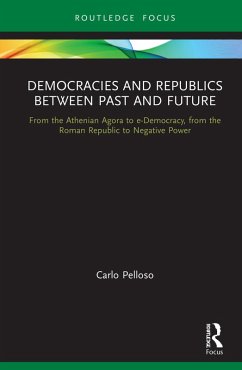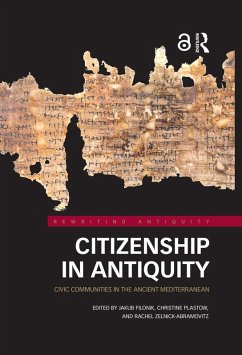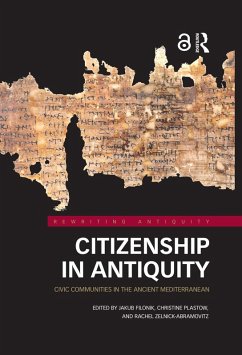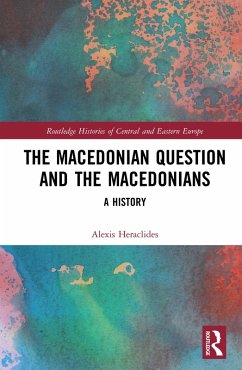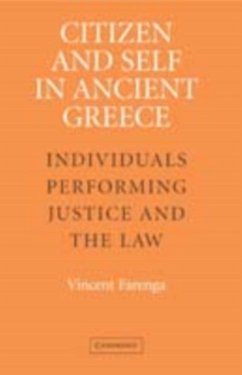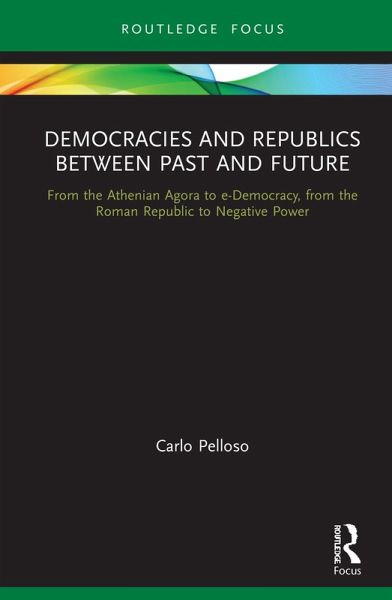
Democracies and Republics Between Past and Future (eBook, PDF)
From the Athenian Agora to e-Democracy, from the Roman Republic to Negative Power
Versandkostenfrei!
Sofort per Download lieferbar
19,95 €
inkl. MwSt.
Weitere Ausgaben:

PAYBACK Punkte
10 °P sammeln!
Democracies and Republics Between Past and Future focuses on the concepts of direct rule by the people in early and classical Athens and the tribunician negative power in early republican Rome - and through this lens explores current political issues in our society.This volume guides readers through the current constitutional systems in the Western world in an attempt to decipher the reasons and extent of the decline of the nexus between 'elections' and 'democracy'; it then turns its gaze to the past in search of some answers for the future, examining early and classical Athens and, finally, e...
Democracies and Republics Between Past and Future focuses on the concepts of direct rule by the people in early and classical Athens and the tribunician negative power in early republican Rome - and through this lens explores current political issues in our society.
This volume guides readers through the current constitutional systems in the Western world in an attempt to decipher the reasons and extent of the decline of the nexus between 'elections' and 'democracy'; it then turns its gaze to the past in search of some answers for the future, examining early and classical Athens and, finally, early republican Rome. In discussing Athens, it explores how an authentic 'power of the people' is more than voting and something rather different from representation, while the examples of Rome demonstrate - thanks to the paradigm of the so-called tribunician power - the importance of institutionalised mechanisms of dialogic conflict between competing powers.
This book will be of primary interest to scholars of legal history, both recent and ancient, and to classicists, but also to the more general reader with an interest in politics and history.
This volume guides readers through the current constitutional systems in the Western world in an attempt to decipher the reasons and extent of the decline of the nexus between 'elections' and 'democracy'; it then turns its gaze to the past in search of some answers for the future, examining early and classical Athens and, finally, early republican Rome. In discussing Athens, it explores how an authentic 'power of the people' is more than voting and something rather different from representation, while the examples of Rome demonstrate - thanks to the paradigm of the so-called tribunician power - the importance of institutionalised mechanisms of dialogic conflict between competing powers.
This book will be of primary interest to scholars of legal history, both recent and ancient, and to classicists, but also to the more general reader with an interest in politics and history.
Dieser Download kann aus rechtlichen Gründen nur mit Rechnungsadresse in A, B, BG, CY, CZ, D, DK, EW, E, FIN, F, GR, HR, H, IRL, I, LT, L, LR, M, NL, PL, P, R, S, SLO, SK ausgeliefert werden.




